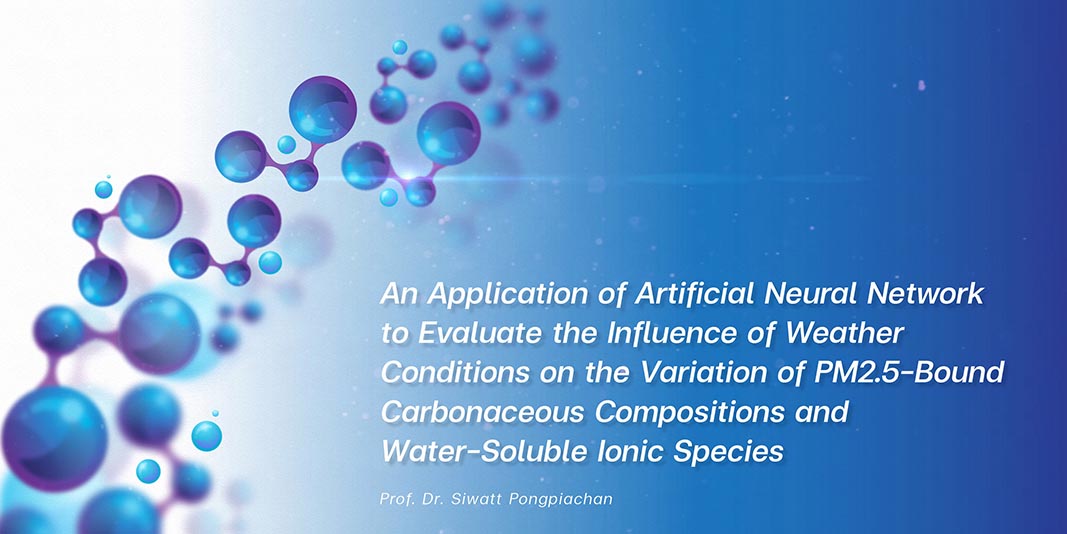An Application of Artificial Neural Network to Evaluate the Influence of Weather Conditions on the Variation of PM2.5-Bound Carbonaceous Compositions and Water-Soluble Ionic Species
- Details
- SDGS - Research

An Application of Artificial Neural Network to Evaluate the Influence of Weather Conditions on the Variation of PM2.5-Bound Carbonaceous Compositions and Water-Soluble Ionic Species
Professor Dr. Siwatt Pongpiachan (School of Social and Environmental Development, National Institute of Development Administration), Qiyuan Wang 2,3,*, Ronbanchob Apiratikul 4, Danai Tipmanee 5, Yu Li 6, Li Xing 7, Guohui Li 2, Yongming Han 2,3 , Junji Cao 2, Ronald C. Macatangay 8, Saran Poshyachinda 8, Aekkapol Aekakkararungroj 9 and Muhammad Zaffar Hashmi 10
Abstract: Previous studies have determined biomass burning as a major source of air pollutants in the ambient air in Thailand. To analyse the impacts of meteorological parameters on the variation of carbonaceous aerosols and water-soluble ionic species (WSIS), numerous statistical models, including a source apportionment analysis with the assistance of principal component analysis (PCA), hierarchical cluster analysis (HCA), and artificial neural networks (ANNs), were employed in this study.
A total of 191 sets of PM2.5 samples were collected from the three monitoring stations in Chiang-Mai, Bangkok, and Phuket from July 2020 to June 2021. Hotspot numbers and other meteorological parameters were obtained using NOAA-20 weather satellites coupled with the Global Land Data Assimilation System. Although PCA revealed that crop residue burning and wildfires are the two main sources of PM2.5, ANNs highlighted the importance of wet deposition as the main depletion mechanism of particulate WSIS and carbonaceous aerosols. Additionally, Mg2+ and Ca2+ were deeply connected with albedo, plausibly owing to their strong hygroscopicity as the CCNs responsible for cloud formation.
อ่านต่อเพิ่มเติมได้ที่ : https://www.spiceworks.com/collaboration/telephony/articles/tips-to-avoid-contact-center-agent-burnout